GNS ONLINE NEWS PORTAL
ALTAF HUSSAIN JANJUA
PIRPUNJAL JANUARY 27::
The political leadership of the Kashmir Valley, irrespective of party affiliations, demonstrates a notable connection with the populace across the region. From Qazigund to Keran Teetwal, leaders consistently transcend political lines to address public issues, visiting affected areas, engaging with citizens, and contributing positively at the governmental level within their capacities. Despite internal differences, they present a united front on matters of public concern. Figures such as Farooq Abdullah, Omar Abdullah, Mehbooba Mufti, Altaf Bukhari, Sajad Lone, Engineer Rashid, Hakim Mohammad Yasin, and Mohammad Yousuf Tarigami, though from different parties, often speak in unison on issues concerning the welfare of the Kashmiri populace. Additionally, civil society and intellectuals also appear united on matters of public interest.
In contrast, the Jammu region lacks this unity, which becomes evident on several crucial occasions. Stretching from Lakhanpur to Marwah Dachhan and Poonch, the Jammu region comprises ten districts, but its political leadership remains confined to their respective constituencies or, at most, their districts. There is a scarcity of leaders whose influence spans from Kathua to Kishtwar and Poonch. A leader from Jammu who becomes the voice for people in Doda or a leader from Poonch who addresses issues in Samba or Reasi is a rare sight. A thorough review of the political history post-1947 reveals a lack of such widely accepted leaders. Notable political figures like D.D. Thakur, Prof. Chaman Lal Gupta, Prof. Bhim Singh, Madan Lal Sharma, Mangat Ram Sharma, Ch. Mohammad Aslam, Haji Buland Khan, Ch. Mohammad Hussain, Devender Singh Rana, Ata-Ullah Sehravardi, Kachloo, and Mir Poonchi were prominent faces, and currently, Dr. Karan Singh, Dr. Jitendra Singh, Chaudhry Lal Singh, Mirza Abdul Rashid, Harsh Dev Singh, and Ravinder Raina are significant figures, but their influence remains limited to a few constituencies. Generally, the political leadership of Jammu is divided into five regions with limited jurisdictions: (1) Jammu, Samba; (2) Kathua; (3) Udhampur, Reasi; (4) Kishtwar, Doda, Ramban; and (5) Rajouri and Poonch. These sub-regions differ significantly in terms of geography, climate, language, and culture, each with its own issues and priorities. There is a lack of mutual communication and concern for each other’s problems, often limited to formal statements in the media.
The border districts of Rajouri and Poonch, collectively known as the Pir Panjal region, have a distinct identity in terms of geography, language, and culture, with unique issues. Unfortunately, the local political leadership too does not appear united in addressing these problems. Individual sincere efforts are often undermined by political rivals who criticize and hinder these initiatives. The region lags in education, health, and infrastructure. The Baba Ghulam Shah Badshah University in Rajouri faces reduced government funding, affecting its administrative and academic activities. The railway project to Poonch remains on paper. Over 60% of posts are vacant in the Government Medical College and Hospital in Rajouri. Other health centers also lack necessary facilities and equipment. Projects like making the historic Mughal Road operational year-round by constructing a tunnel, the Buffliaz to Thannamandi tunnel project, establishing a Tribal Research Institute, a Tribal University, institutions like IIT and IIM, ensuring the implementation of central government schemes for tribal welfare, declaring Poonch and Rajouri as a separate parliamentary constituency, and creating a separate tourism circuit with a dedicated Tourism Development Authority are issues requiring collective efforts. However, the political leadership of this region remains confined to their constituencies, often focusing on specific villages and communities. In recent elections, campaigns were limited to certain areas and communities, and post-election work continues in this narrow scope.
There is a need for a ‘Common Minimum Programme’ among the political leadership of Rajouri and Poonch districts to address collective issues and demands. This programme should include short-term and long-term matters, with leaders rising above political ideologies for the broader benefit of the region. As needed, meetings with the President, Prime Minister, Leader of the Opposition, Lieutenant Governor, Chief Minister, and other key officials should be arranged to inform them of the region’s issues. Especially for legislators, a ‘Common Minimum Programme’ is essential to ensure the region’s rightful participation in decision-making, legislation, and planning at the government level. They must move beyond minor issues and embrace their larger roles. Panchayats, Block Development Councils, and District Development Councils are available for development issues. The region has capable and intelligent political leadership making individual contributions, but united efforts would yield quicker and more impactful results. The civil society of the region also needs to play an active, positive, and impartial role, as a pressure group is necessary to keep the political leadership attentive to people’s issues.
If there were a ‘Common Minimum Programme’ among the legislators for the collective public and developmental issues of the Pir Panjal region, the administration would not have been so slow in responding to the mysterious deaths in the village of Budhal in the Kotranka sub-division of Rajouri’s Khawas tehsil. Most leaders remained silent until nearly a dozen deaths occurred, giving little importance to the incident. It was the print and social media that highlighted the issue, prompting local legislators to take notice. A recent joint press conference by three legislators from Rajouri is a positive development. There is a need for legislators from both districts to promptly unite and draw the government’s attention to such matters. On issues of public interest, political tug-of-war should be avoided, and efforts should be made to support those contributing, addressing any shortcomings collectively. Criticizing without action should be abandoned. In today’s era, nothing remains hidden from the public; they are aware of who played what role and how.
Note: The author is an advocate at the J&K High Court.
Feedback@ advaltafjanjua@gmail.com
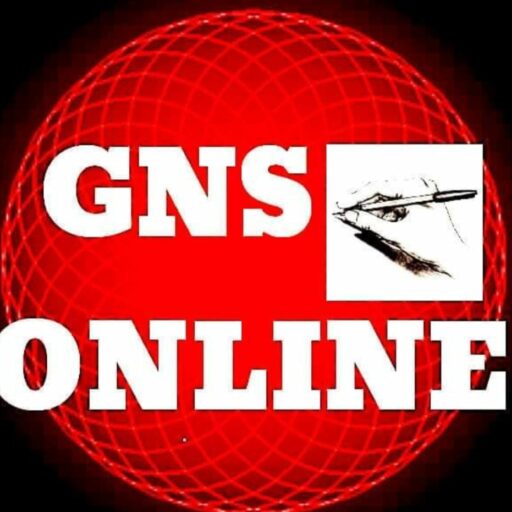








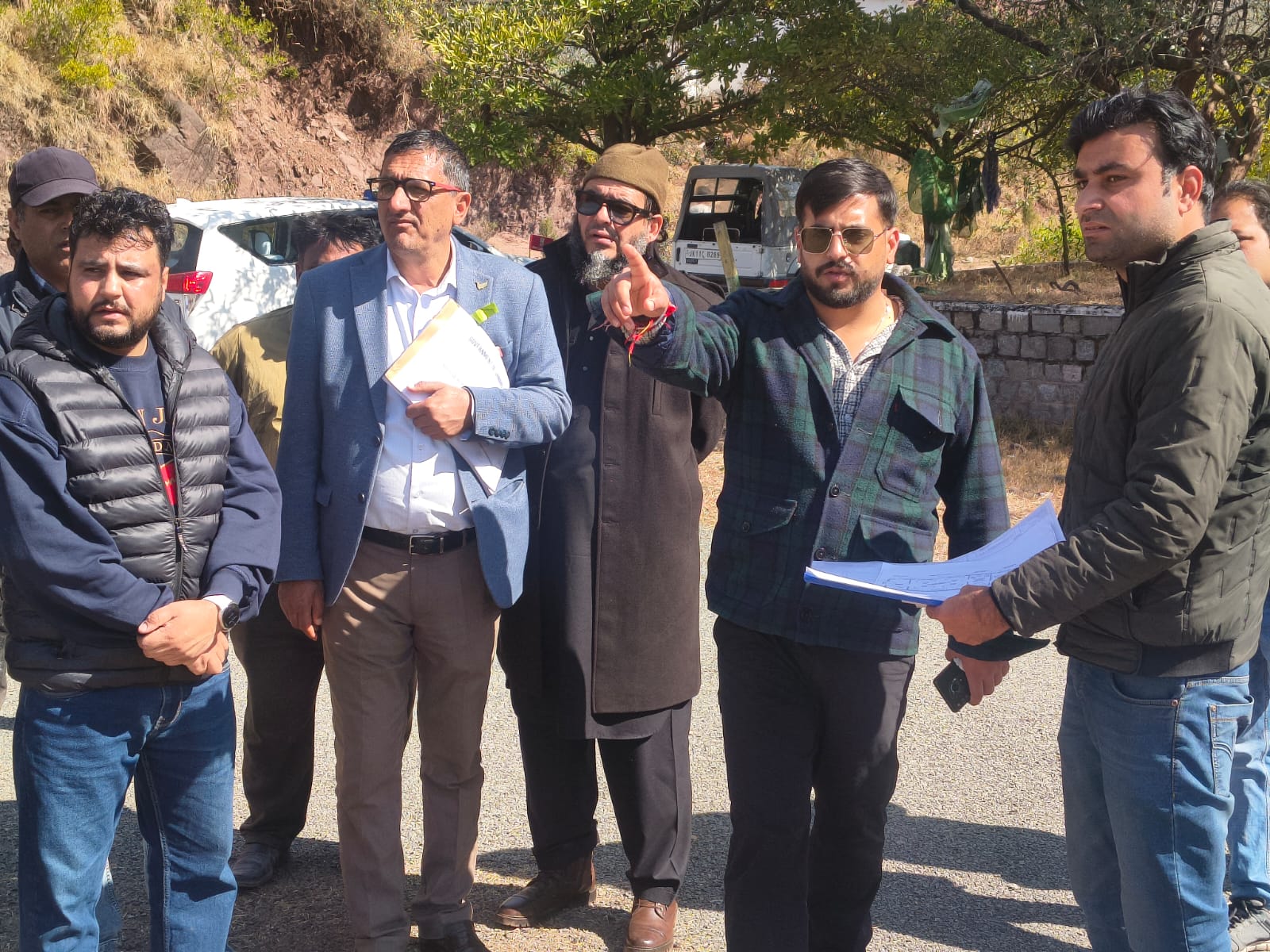
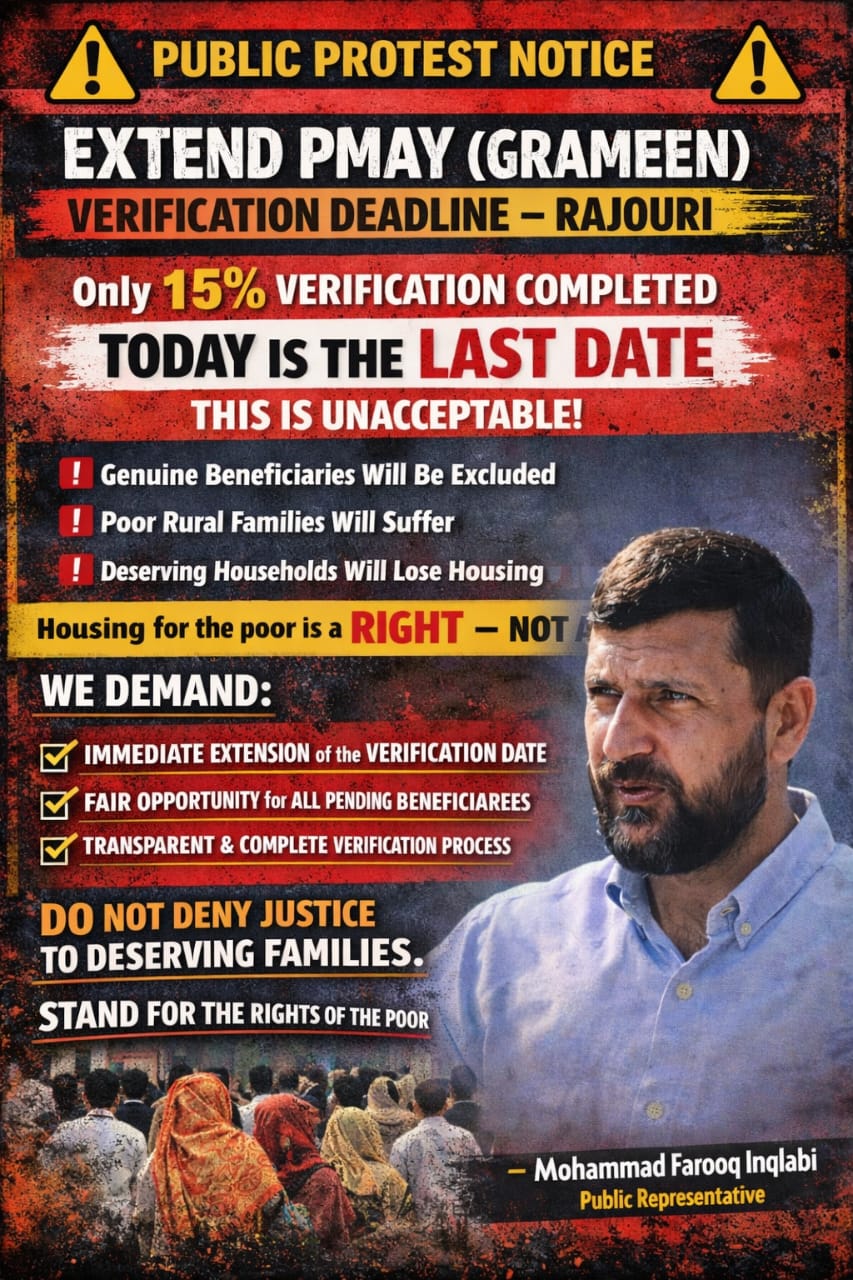
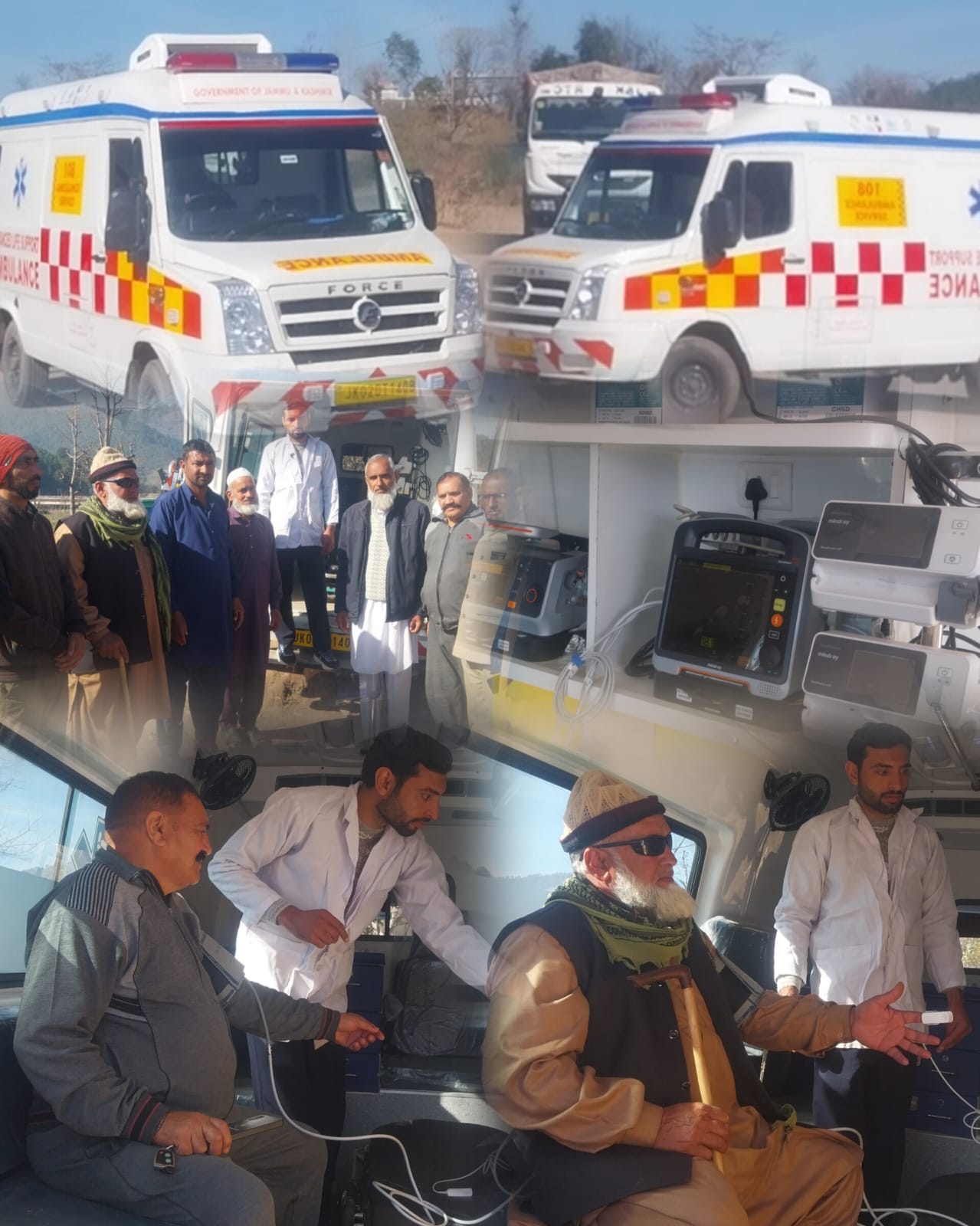
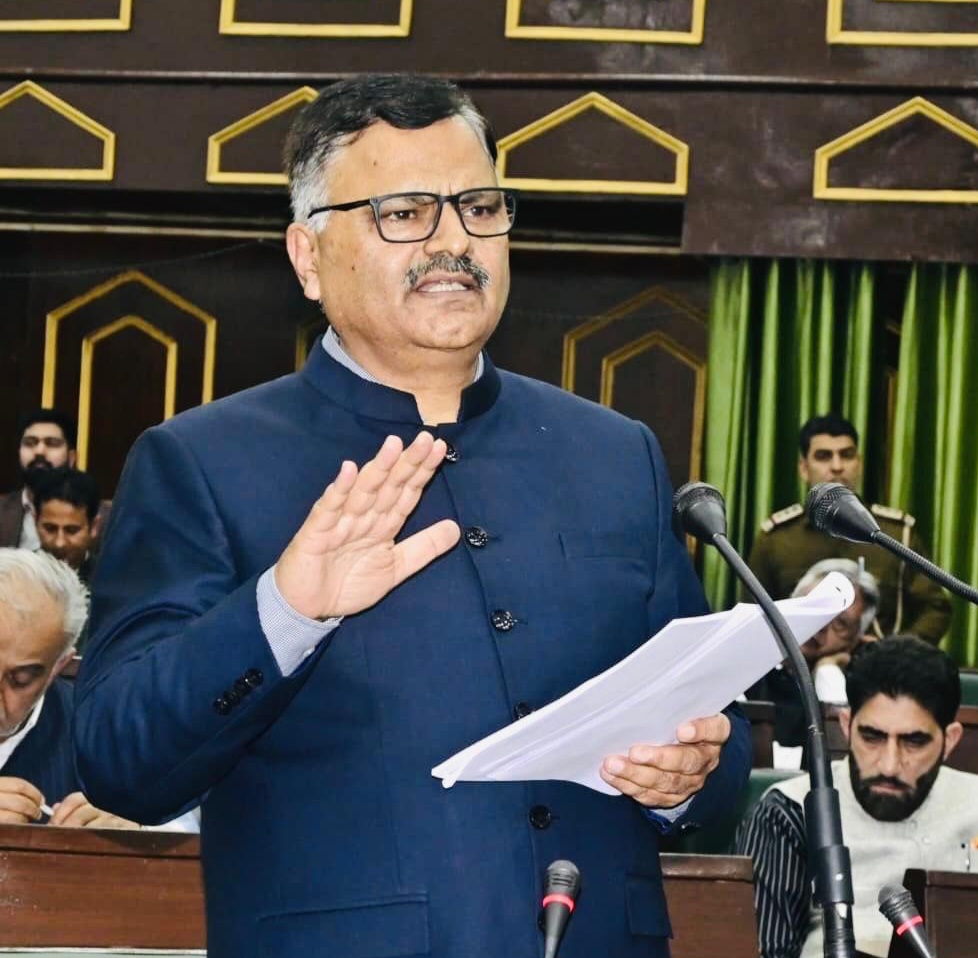
 Users Today : 79
Users Today : 79 Users Yesterday : 334
Users Yesterday : 334